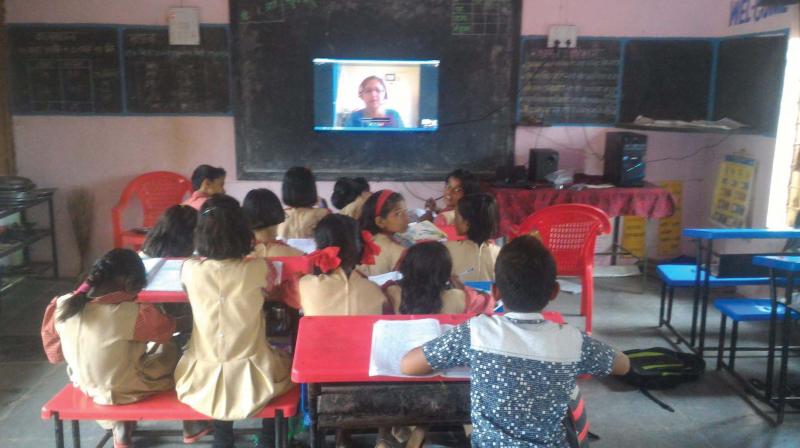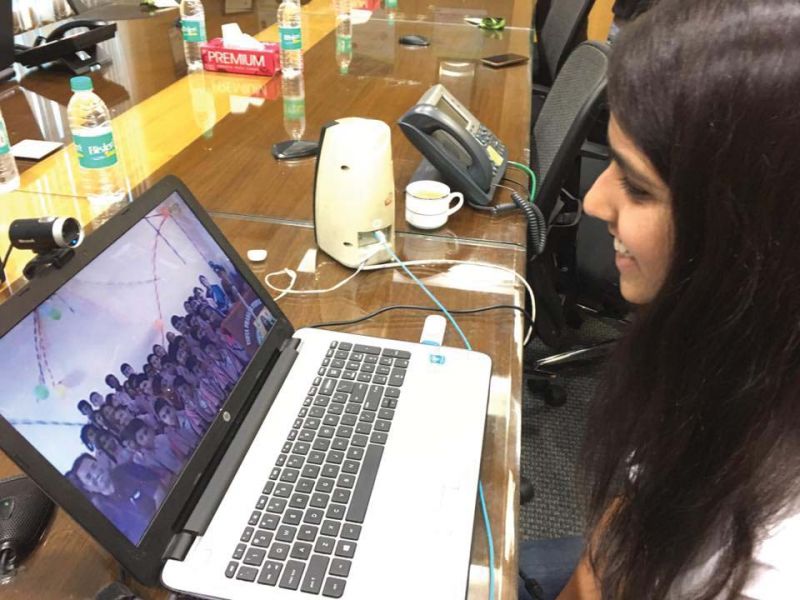Classy education, why can't rural kids have it?
eVidyaloka runs the basic premise of transforming rural education through digital classrooms.;

Bengaluru: While quality hi-tech education continues to be the preserve of those who can shell out hefty fees and are on the right side of the digital divide, this Bengaluru based not-for-profit organisation is working towards bringing them to classrooms located in rural areas.
eVidyaloka, which recently announced the launch of its 100th village center at Government Higher Primary School, Karthalu in K.R. Nagar, runs on the basic premise of transforming rural education through digital classrooms.

"Today, Indian education system has reached a state where the Govt. has achieved a significant improvement in children enrolment to school. The real problem is in their learning outcomes. One of the root causes is the acute shortage of good quality teachers, especially in rural India. And guess what, 85% of the 1.3 million schools in the country are located in villages," said Venkat Sriraman, founder, eVidyaloka, which started in 2011.
The digital classrooms are set up within the school premises and it enables the volunteers to connect with the students through remote access from any part of the world via online and interactive Skype classes.
"It all aims to provide standardized lesson plans and teaching aids for a consistent learning experience for the children in villages," said Venkat.
He said eVidyaloka "is a bridging platform, a service delivery model, that aggregates passionate individuals across the world to volunteer as teachers, who teach children in remote villages of India via online classes."
Through digital classrooms, his team has reached out to more than 2,600 children across the State, which includes 28 rural schools across the State. Their mode of functioning brings together volunteers across 110 cities, leveraging the power of technology to enable access to high-quality teaching for the children in the remotest villages and tribal zones of India.
"It focuses on children aged between 10 and 14 years (6th 8th grade) where they are taught Mathematics, Science and English with the same syllabus as prescribed by the local State Board, delivering live through interactive classes in the local medium, through a powerful partner ecosystem. This initiative has been taken up in various Government schools in Karnataka, Andhra Pradesh, Telangana, Tamil Nadu, Jharkhand, West Bengal and Maharashtra," he explained.
As for the future, Venkat said, "We are looking for avenues to provide scholarship, mentoring and skill development opportunities to the children in rural Karnataka that are part of the eVidyaloka model, through partnerships with other organisations."
Elaborating on the state-specific initiatives he said, “We are reaching out to more schools in rural Karnataka to implement this model. We recently initiated a new campaign called (Hallialli paata, bhavishyada nota or teach today, transform tomorrow) which invites Kannada-speaking volunteers to join the revolution of providing quality online education to schools in rural Karnataka.”
The volunteer may be based anywhere across the globe, and teach two hours a week in Kannada (read, write and speak).
The campaign also aims to create awareness about the 28 schools in rural Karnataka, where the eVidyaloka model is currently being implemented and connect students with volunteer teachers via online classes (Skype), he added.

